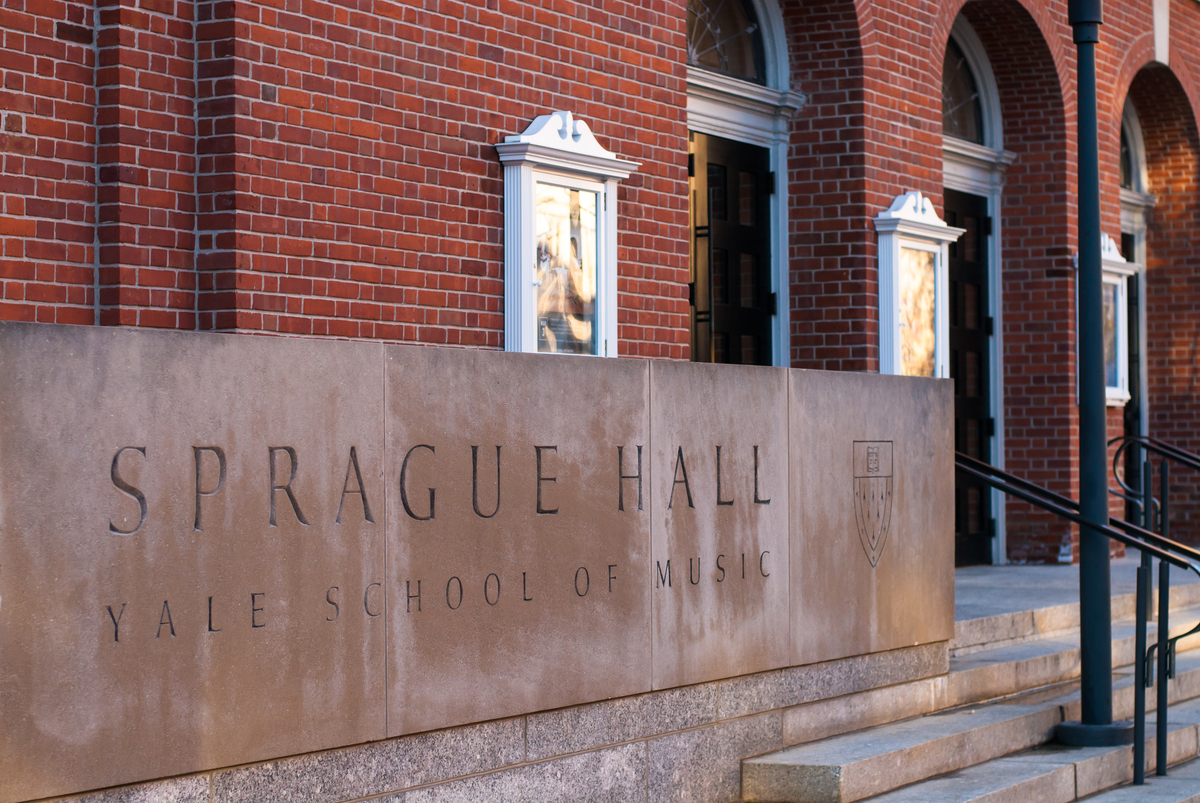Yale Opera presents annual fall showcase under University guidelines
Despite University limitations and restrictions due to the pandemic, Yale School of Music’s opera program carried out a seven-selection fall showcase this past Friday and Saturday.

This past Friday and Saturday, Yale Opera serenaded its audience from a distance with its exhibition, which takes place each semester, of selections from the operatic repertoire.
The Yale School of Music’s opera program, directed by Gerald Martin Moore, performed a fully staged performance of excerpts from well-known operas at the Morse Recital Hall this past weekend. The showcase featured scenes from Jules Émile Frédéric Massenet’s “Cendrillon,” Wolfgang Amadeus Mozart’s “Don Giovanni” and Richard Strauss’ “Ariadne auf Naxos” on Friday and Gaetano Donizetti’s “Anna Bolena,” Massenet’s “Manon,” Gioachino Rossini’s “Le comte Ory” and Giuseppe Verdi’s “Falstaff” on Saturday.
“I could not be more proud and in awe of the singers that I shared the stage with,” said Seiyoung Kim MUS ’23, a first-year tenor in Yale Opera. “Every singer sounded utterly beautiful and conveyed true emotions last night and the night before regardless of many difficulties.”
In light of University restrictions surrounding COVID-19, Yale Opera delivered seven selections from the operatic repertoire — masks and all.
Current School of Music health guidelines mean that singers must wear masks at all times during indoor rehearsals and performances except in the case of a solo performance. A maximum of 20 singers may rehearse or perform together at a time, and only current School of Music and Institute of Sacred Music students, faculty and staff may attend performances in person.
“All of the School of Music’s COVID health and safety guidelines were determined in consultation with Yale’s central COVID leadership,” Krista Johnson, the School of Music’s manager of concert programs, explained in an email to the News. “Our top priority at all points during this pandemic has been to establish effective parameters that would allow our students to safely continue their course of study and progress in their artistic development.”
Johnson added that while persons unaffiliated with the music school or Institute of Sacred Music are prohibited from attending in-person Yale Opera events, they are invited to view concert livestreams online.
Despite limitations due to the pandemic, Yale Opera was undeterred from rehearsing and delivering a full fall exhibition. The program director’s practice of tailoring performances to the unique voices featured each year was no different from the past.
“The scenes are chosen every year based on the singers that we have in the program, and they’re designed to show [the singers] off,” Moore said. “They’re chosen specifically with [singers’] voice types in mind, which is why we change them every year, depending on who we have.”
Moore also explained that the operatic repertoire from which he chooses pieces includes selections spanning across four centuries of music.
In selecting pieces best suited for a given singer’s voice, Moore must sift through the repertoire — which includes pieces in a variety of languages including German, French and Italian — and from a variety of time periods and styles such as contemporary, baroque, bel canto and romantic.
Soprano Magdalena Kuzma MUS ’22, affirmed the need for repertoire to suit singers’ voices.
“Every singer’s timbre is like a fingerprint, completely unique so it is important to sing [repertoire] that highlights our strengths while also challenging us just enough to further technical progression,” Kuzma explained.
Current restrictions on in-person attendance of Yale Opera events will remain in place until further notice.
Despite these restrictions, Yale Opera will host a variety of other performances throughout the year, including individual recitals for each of the 16 singers in the opera program, an orchestra gala, a Baroque Opera and a full opera.
Upcoming Music School events and access to livestreams can be found at the School of Music website.







